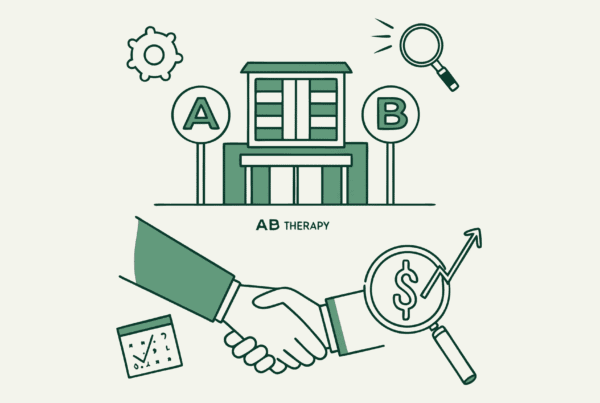Selling a veterinary practice is one of the most significant decisions you will ever make. For practice owners in Delaware, the current market presents a unique window of opportunity, with strong buyer interest and high valuations for well-run clinics. This guide walks you through the landscape, from understanding your practice’s value to planning for your life after the sale. We will cover the key factors that can turn a good practice into a highly sought-after acquisition.
Curious about what your practice might be worth in today’s market?
The Market for Veterinary Practices in Delaware
The environment for selling a veterinary practice in Delaware is currently robust. Demand is high, not just from local practitioners looking to expand, but from larger corporate and private equity-backed groups seeking to establish or grow their footprint in the region. This competition among buyers is a significant advantage for you as a seller.
A Seller-Friendly Environment
Strategic buyers are actively looking for established practices with a loyal client base and a history of stable performance. They see the value in Delaware’s communities and are willing to pay a premium for clinics that are leaders in their local market. This creates a favorable dynamic where prepared sellers can often entertain multiple offers.
Profitability as the Foundation
Buyers are most interested in your practice’s profitability. A well-managed small animal hospital in Delaware typically sees profit margins of 10-15%. However, buyers look deeper than that, focusing on a figure called Adjusted EBITDA. A healthy practice has strong, consistent cash flow. This financial health is the foundation of a premium valuation in today’s market.
Key Considerations Beyond the Numbers
While a strong financial profile is important, a successful sale involves more than just numbers on a spreadsheet. It is a transition that affects your legacy, your staff, and your future. Thinking about these elements early is critical. Do you see yourself continuing to work in the practice for a few years, or are you ready for a clean break? What is most important for protecting your team, who helped you build the practice? Answering these questions helps define what the “right” deal looks like for you, ensuring the outcome aligns with your personal and professional goals, not just your financial ones.
A comprehensive valuation is the foundation of a successful practice transition strategy.
Whats Driving Market Activity?
Recent transactions show just how strong the Delaware market is. For example, a local 2.5-doctor practice that was grossing $1.48 million recently sold to a corporate buyer for $2.6 million. This result was not an accident. It was the outcome of specific market forces and strategic preparation.
Here are three key drivers behind today’s strong valuations:
- Strategic Buyer Demand. Corporate and private equity groups need to grow, and acquiring successful, independent practices is their most efficient path. They are looking for the stability and community reputation that you have already built.
- The Power of Preparation. We find that many owners think about selling 2-3 years in the future. That is the perfect time to start preparing. Buyers pay for proven performance, not just potential. The work you do now to streamline operations and clean up financials directly translates to a higher value when you are ready to sell.
- A Compelling Story. Buyers do not just buy a set of financials. They buy a story of growth, stability, and future opportunity. Framing your practice’s unique strengths, from its client demographics to its growth potential, is what separates a good price from a great one.
The Practice Sale Process
Selling your practice is a multi-stage journey that requires careful management to protect confidentiality and maximize value. It begins long before the practice is ever presented to a potential buyer. The first step is an in-depth valuation and a preparation phase where we work with you to position the practice in the best possible light. From there, we run a confidential and structured process to identify and approach a curated list of qualified buyers. This creates a competitive environment. The final stages involve negotiation, due diligence, and legal documentation. Due diligence is often where deals face challenges, making expert guidance critical to navigating buyer requests and reaching the closing table smoothly.
The due diligence process is where many practice sales encounter unexpected challenges.
How Your Practice is Valued
Many owners believe their practice’s value is a simple multiple of gross revenue. In today’s market, this is not accurate. Sophisticated buyers value your practice based on a multiple of its Adjusted EBITDA (Earnings Before Interest, Taxes, Depreciation, and Amortization). This figure represents the true cash flow of the business. It is calculated by taking your net income and adding back owner-specific expenses. For healthy veterinary practices, valuation multiples can be quite strong.
| Metric | Description | Typical Delaware Vet Practice |
|---|---|---|
| Gross Revenue | Total top-line income. | (Example: $1.5M) |
| Adjusted EBITDA | Your true profit after normalizing for owner perks. | 13% – 16% of Revenue |
| Valuation Multiple | A multiplier based on risk, growth, and team. | 8x – 13x EBITDA |
| Practice Value | Adjusted EBITDA x Multiple. | Often exceeds $2.5M+ |
Getting this calculation right is the difference between an average price and a premium one. It’s about telling the financial story of your practice in a way that sophisticated buyers understand and appreciate.
Planning for What Comes Next
The moment the sale closes is not the end of the story. It is the beginning of your next chapter. How the deal is structured has major implications for your future. Do you want to retain some ownership and benefit from the practice’s future growth? This can be done through an equity rollover. Are you concerned about losing control? We can help you find a partner who values your clinical autonomy. Structures like these, along with smart tax planning, are designed to protect your financial future and your legacy. Planning for these post-sale realities is just as important as negotiating the sale price.
Your legacy and staff deserve protection during the transition to new ownership.
Frequently Asked Questions
What is the current market like for selling a veterinary practice in Delaware?
The Delaware market for veterinary practices is strong with high buyer demand. Local practitioners, corporate buyers, and private equity groups are actively seeking to acquire successful practices, resulting in competitive offers and favorable conditions for sellers.
How is a veterinary practice in Delaware typically valued?
Veterinary practices are valued based on Adjusted EBITDA (Earnings Before Interest, Taxes, Depreciation, and Amortization), reflecting true cash flow. The valuation multiple ranges between 8x and 13x EBITDA, with healthy practices often valued above $2.5 million. Gross revenue alone is not sufficient for valuation.
What factors beyond financials should I consider when selling my Delaware vet practice?
Beyond financial metrics, consider your legacy, staff welfare, and your future plans. Decide whether you’ll stay post-sale or make a clean break, and plan for protecting your team. Align the sale terms to your personal and professional goals for a successful transition.
What steps are involved in the sale process of a Delaware veterinary practice?
The process starts with a valuation and preparation phase, followed by confidential marketing to qualified buyers. It culminates in negotiation, due diligence, and legal documentation. Managing confidentiality and expert due diligence support are crucial to maximize value and ensure a smooth closing.
How should I plan for my future after selling my veterinary practice?
Post-sale planning is critical, including options like retaining partial ownership through equity rollover or securing clinical autonomy in a partnership. Smart tax and transition planning safeguard your financial future and legacy, making these considerations as important as negotiating the sale price.



